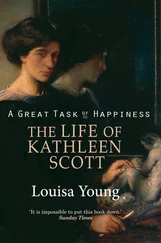The woman was wearing red lipstick and gold earrings, a nice lace blouse and bangles that dangled up and down her wrists. She had painted a mole on her face, just above her lips, with the same black pencil that she used to line her lips — at least Nneoma suspected as much. It was the fashion, Nneoma knew. A mole, but some called it a beauty mark.
The other two women to whom Nneoma told the story were not pretty women, but rather ugly ones who wore no earrings, no lipstick, no beauty marks. The telling of the story to these two women had occurred on separate instances, of course — there had been at least a four-year gap in between.
In any case, both of these women wore plain blouses — not made of lace; and both of them were even a little foul-smelling, something like the scent of rotten fruit. It was as if they had given up altogether, this refusal of theirs even to feign beauty. Perhaps it was a mockery of beauty, Nneoma thought. All the same, she told them the story.
Nneoma would continue to tell the story. She was after all the one who found Ezioma that day. Ezioma, lying on the bed in her yellow nightgown, the blanket pulled up to her chest. Ezioma, eyes closed, sleeping as peacefully as ever. And the baby in her womb, sleeping as peacefully as her.
Sunday had come again. Nneoma was once more in the church on Rumuola Road. She made her way to her usual seat, in the second storey of the church — on one of the benches farthest away from the pulpit. The sun was coming in through the windows, laying itself in long, tapering streaks on the floor. Nneoma sat, mindlessly observing the streaks of light.
The hall filled up so that there were only a few spaces left to sit, most of them on those benches along the perimeter. These were usually the last to fill.
When the woman approached, taking a seat on Nneoma’s bench, Nneoma felt her presence but did not at first lift her gaze. Nearby, a fan rattled and buzzed, its metal frame glimmering where the sun landed on it.
The woman greeted Nneoma good morning, and only as Nneoma turned to greet the woman back did she look up to see the woman’s face. In those brief moments she observed that the woman was new to the church. She observed that the woman’s eyes appeared tired. She observed the beads of sweat on the woman’s forehead. Her eyes fell to the woman’s protruding belly. She observed that the woman was with child. What luck, she thought, as she reached into her handbag to take out the handkerchief in it. She offered the handkerchief to the woman. ‘Were akwa,’ she said. Take the cloth. The woman accepted.
Nneoma allowed her eyes to fall on the woman’s belly once more, to settle there long enough for the woman to become aware of her gaze.
‘Iwere umu nke gi?’ the woman asked.
Nneoma shook her head. No, she said. She did not have any children of her own.
The woman nodded sympathetically. All around them people chatted; voices rose.
A long time ago, when she was just beginning at Staff School (she was twenty-four at the time and had just finished her Youth Service), Nneoma had the impression that she would marry. Because Obinna — Mr Nkangineme — the headmaster, had kept his eyes on her. He had been more watchful of her than of any of the other teachers, even more watchful of her than of Ezioma, who had started at the school at the same time as Nneoma.
Before Obinna, no other man had shown interest in Nneoma. She was, after all, shy and socially awkward. She could no more hold a conversation than a gaze. Not to mention that she did not fill out her dresses the way many other girls did. But even when she began to fill them out, it appeared it was already too late. It seemed the boys had grown accustomed to paying her no attention; they continued that way throughout secondary school, throughout her years at the university, even throughout her Youth Service. She watched as the other girls put on their lipstick, as they fussed with their dresses and hair, as they went out fervently on dates.
But Obinna gave her hope. He would sometimes come into her class after school was dismissed, taking a seat across from her, facing her. Sometimes he leaned into the back of his chair.
The first time he came, Nneoma was rummaging through the drawer of her desk. There was a scent of dead roaches coming from the drawer, and so she had lowered her head into the drawer to see if she could find the roaches. It was conceivable that they’d be there — the desk was old, its wood chipped at the edges, with bite marks where mice appeared to have gnawed at it.
Opposite her desk was a large window. Sometimes, while the children worked silently in their notebooks, she gazed at a vanishing point somewhere beyond the window, beyond the orange and guava and plantain trees, whose leaves sometimes rustled in the morning or afternoon breeze. She looked beyond the patchy field of green and yellow grass, beyond the tombstones in the cemetery across the school compound. She’d fade away into mindless thoughts, thoughts which dissolved the instant any student made a sound.
Well, even with the window, she did not see him coming, not because of her distant daydreaming, but rather because she was so immersed in her search for the dead roaches. He startled her, and she gasped. Then she chuckled softly, embarrassed by her fright. He asked if he could help her find what she was looking for. She straightened up, smiled politely at him. He was wearing a taupe coloured agbada trimmed with gold. His hair was not so grey then. He held a hat in his hand, fussing with it as he made his way towards her desk. He brought with him a sweet smell, the scent of plantain leaves warmed by sunlight.
The chair on the other side of her desk was where students sometimes sat when she called them to have a one-on-one conference with her. He shook her hand first, then sat on the chair, leaned into the back of the seat, as if to create more space between them.
‘Are you settling fine?’ he asked.
She nodded.
‘Be sure to let me know if you need anything — chalk, paper, pens and pencils. Any supplies.’
She nodded. ‘Thank you,’ she said.
He stayed for just a moment more and then he rose from the seat, made his way back out of the door.
This was how that first meeting went. He might have done the same with Ezioma, and in fact with all four of the new teachers who had gained employment at Staff School that year. He might have gone to their classes and offered chalk, paper, pens and pencils. And before all of that, he might have shaken their hands too. But Nneoma suspected that he didn’t. She was sure he’d taken those extra steps just for her.
All around them, in the church, the voices quieted down. Nneoma leaned over to the woman. ‘The pastor will soon begin,’ she explained.
The woman nodded.
‘But don’t worry, we still have a few minutes before he does. We can talk for a bit.’ She looked at the woman’s belly once more. ‘How far?’ she asked.
‘Seven months, almost eight. Counting down the weeks now.’
Nneoma smiled. ‘I had a friend,’ she said. ‘Ezioma.’ She fussed with her hands, which rested on her handbag. She tangled and untangled her fingers. There was a silence.
The woman cleared her throat. ‘Your friend,’ she said. ‘She was pregnant, too?’
Nneoma smiled gratefully. She nodded. ‘Yes, she was pregnant. She used to come to this church.’
The woman nodded, as if to signal Nneoma to continue.
Nneoma paused thoughtfully. Then she said, ‘You know, here the pastor tells us to greet one another, and we do — by shaking hands, you know. We used to hug, but one day he told us to stop. Only to shake hands. Because he was afraid that all the hugging and embracing was scaring off the visitors. Makes sense. I suppose it can be a scary thing to have to hug a stranger.’
Читать дальше












